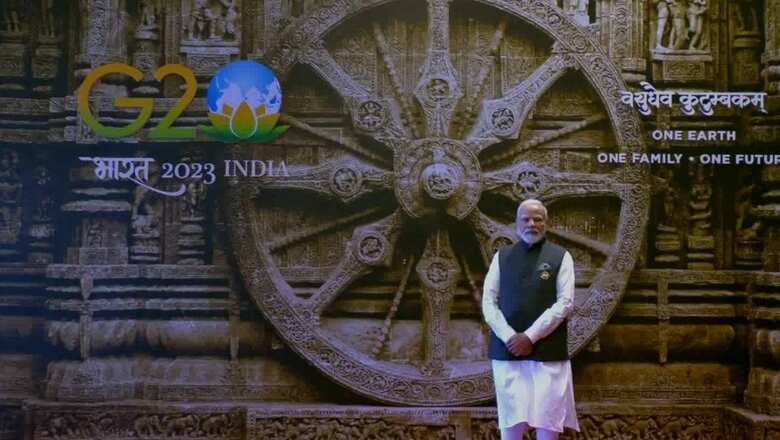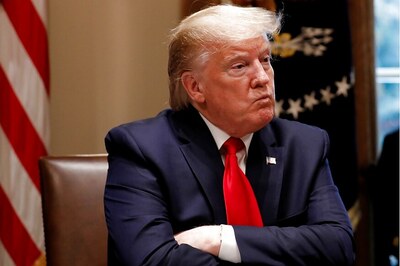
views
The idea of Bharat is beyond the abstract idea of the State and is based on the idea of inclusion, ethos, and knowledge traditions. The historical reminiscence is entirely different from the political narrative that is served to us and the universal brotherhood that is ‘Vasudhaiva Kutumbakam’ has been an imperishable feature of our civilisational consciousness.
Historically, there has been a continual metamorphosis in society concerning the understanding of the concept of citizenship, and it has evolved. Bharat has always practised what it preached to the world as citizenship has been a more inclusive phenomenon rather than being exclusive as it was practised in other parts of the world. The notion of citizenship for Bharat has never been a vertical one, rather it has been a profound and horizontal idea providing a more comprehensive relationship between citizens based on rights and obligations.
The G20 Summit 2023 under India’s leadership with the theme ‘Vasudhaiva Kutumbakam’ has a lesson for the entire globe. The idea of the theme has its origin in the Maha Upanishad and other rich ancient texts. The philosophy of ‘One Earth, One Family, One Future’ holds a civilisational significance for India as compassion, unity, and cooperation are tied to our ancient roots. Our democratic tradition has a triumphant journey of ancient republics, janapadas, and their governance. Since ancient times, there has been one quintessential feature of our country which is performing one’s duty responsibly and honestly towards the country, society, and family. The affluent heritage, democratic values, and peaceful living regardless of diverse socio-cultural varieties over thousands of years shaped our national identity.
Participatory citizenship and mutual benevolence for various communities, cultures, languages, faiths, and beliefs has been an integral element of our philosophy. The civilisational history of Bharat is distinctive and we, as a nation, have made huge strides over centuries in governance, political stability, knowledge, technology, trade, foreign policy, soft power, and economy. We have emerged as a leader in the global world without abdicating the foundational premises of our civilisational values and ethos.
The idea of global citizenship is natural and indigenous to our nation and we have given to this world the idea of ‘Vasudhaiva Kutumbakam’. Bharat has a tradition and culture of a universal value system and a history of educative promotions of global citizenship. The ancient literature, arts, texts, and our Indic knowledge system exhibit the philosophy of Yatra Visvam Bhavatyekanidam which means that the whole world is one family and the idea of universal peace “Shanti”, thus advancing people to be cosmic citizens by widening their narrow individual selves.
In our philosophy, global citizenship is not new but a more comprehensive practice propagating values, ethos, and oneness with the distant and unknown others. Our understanding of humanity is deep and consistent, with the idea of the world as an extended family and fellowship with the far ones, without meeting or knowing them.
The incumbent government and Prime Minister Narendra Modi have left no stone unturned in ameliorating the philosophical practice of global partnership and citizenship for a better world. Narendra Modi deserves all praise for conceptualising and contextualising the role of global citizenship in the current global political scenario. The governance paradigm and policy in all aspects have transcended the thematic representations of global citizenship and have brought the world into a practising model of governance.
Foreign policy, governance, and education policy have concomitantly engineered Bharat’s rise in the global milieu and also enhanced soft power. The University Grants Commission (UGC), in its document Educational Framework for Global Citizenship in Higher Education, published in 2021 during the chairmanship of D.P Singh, developed a comprehensive framework for global citizenship education. The main objectives of the framework are focused on developing, firstly, a deep knowledge of global issues and universal values such as justice, equality, dignity, and respect. Secondly, the cognitive skills to think critically, systemically, and creatively, and thirdly, non-cognitive skills including social skills such as empathy and conflict resolution.
Bharat’s foreign policy is a testimony to the new leadership space that has been occupied by us in the world and steering the new world order where there is no hegemony of the Global North. The G20 Presidency of Bharat has created a paradigm shift in global politics and there is no denial to the fact that the Narendra Modi-led government at the Centre has successfully articulated this opportunity to present its capacity as the bridge to the Global South. Bharat is being looked up to now by the entire world to counter terrorism, security challenges, and economic recession, and to foster diplomatic negotiations, energy partnerships, climate change dialogues, and a more equitable world order.
The Delhi Declaration is a promising step forward and a testament to the commitment of G20 and global citizens to partnership in geopolitics, technology, innovation, industry, investment, infrastructure, AI, environment, ecology, economy, poverty alleviation, and more. It is the new voice of the Global South and the African continent. The realisation of the goals of the Declaration will depend on several factors, including the political and moral will of the G20 member countries, the role of civil society, the availability of resources, and the continuous partnership at various platforms.
Bharat is facing a conjunction of both opportunities and challenges but given the leadership abilities and unprecedented global support, there is a new hope that we are looked upon by the entire world. The new Bharat is currently the focal point of the world and our role as the ‘Mother of Democracy’ and also the voice of the Global South is colossal.
The author is currently an Assistant professor at the University of Delhi and the founder and director of the House of Political Empowerment (Hope) Research and Innovation Foundation. Views expressed in the above piece are personal and solely that of the author. They do not necessarily reflect News18’s views.


















Comments
0 comment